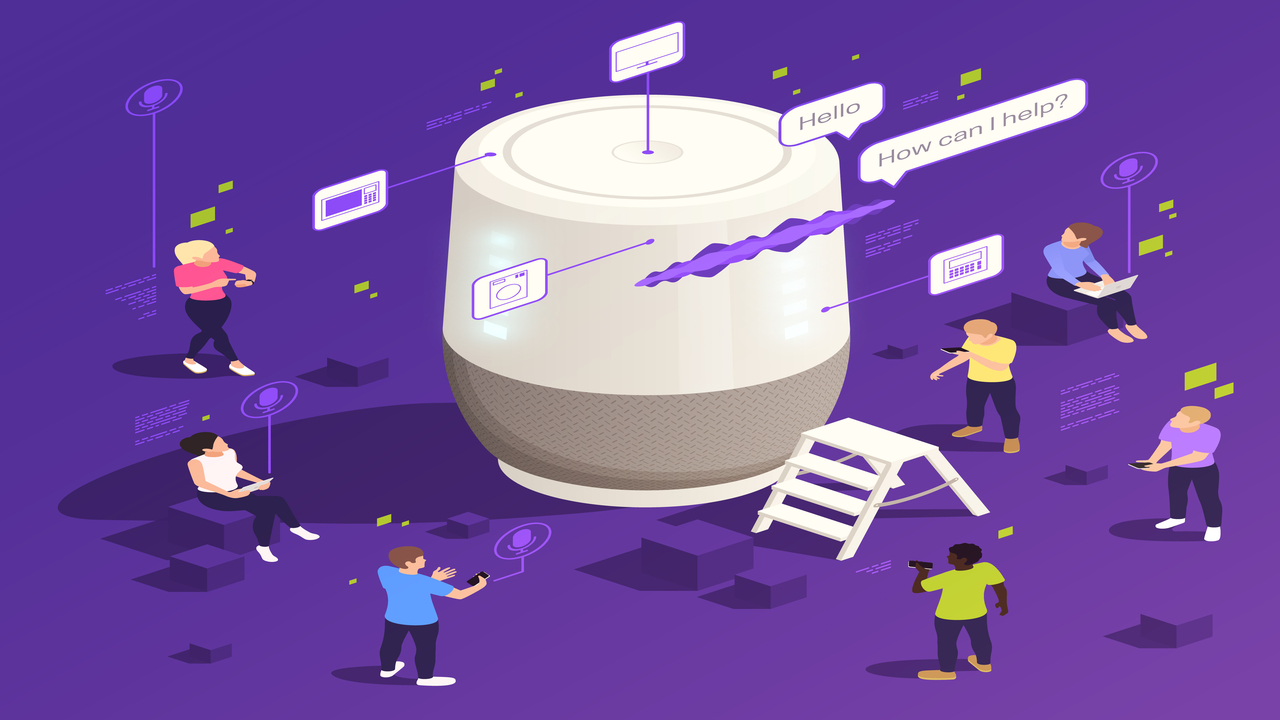Finding the right AI voice generator for podcasting is crucial for creating engaging and professional audio content. The right tool can transform your workflow, saving you time and money while enhancing your podcast’s overall quality. This guide will walk you through the essential features to consider, how to evaluate voice quality, and seamlessly integrate AI voices into your production process.
We’ll also cover cost, licensing, and explore popular platforms to help you make an informed decision.
Choosing the right AI voice generator involves more than just finding a tool that works; it’s about finding one that fits your podcast’s style, budget, and long-term goals. This means understanding the nuances of voice quality, naturalness, and integration with your existing workflow. We’ll equip you with the knowledge to navigate these factors and choose the perfect AI voice partner for your podcast.
Essential Features of AI Voice Generators for Podcasting
Choosing the right AI voice generator can significantly enhance your podcast’s production value and listener engagement. Several key features should be at the forefront of your decision-making process. Understanding these features will help you select a tool that perfectly complements your podcasting style and goals.
Key Features for Podcasting AI Voice Generators
Prioritizing features like natural-sounding voices, diverse voice styles, customization options, and seamless integration with your workflow is crucial. The right AI voice generator should feel like an extension of your creative process, not a hurdle.
- Natural-Sounding Voices and Intonation: A high-quality AI voice generator should produce speech that sounds human, avoiding robotic or monotone delivery. Natural intonation, emphasis, and pacing are essential for maintaining listener engagement and preventing fatigue.
- Variety of Voice Styles: Different voice styles suit various podcast genres. A news podcast might benefit from a clear, authoritative voice, while a comedy podcast might thrive with a more playful or quirky tone. Consider the overall mood and tone of your podcast when selecting voice options.
- Customization Options: The ability to adjust parameters like speech rate, pitch, and tone allows for fine-tuning the voice to perfectly match your branding and style. This level of control is crucial for creating a consistent and professional sound.
- Seamless Integration: The AI voice generator should integrate easily with your existing podcasting workflow. Look for tools that offer straightforward export options and compatibility with popular audio editing software.
Voice Style Suitability for Podcast Genres
The choice of voice style significantly impacts listener perception and engagement. Different genres benefit from distinct vocal characteristics.
| Genre | Suitable Voice Style | Example Description |
|---|---|---|
| News/Informative | Clear, Authoritative | A calm, confident voice with precise pronunciation and a moderate pace. |
| Comedy/Entertainment | Playful, Energetic | A more expressive voice with varied intonation and pacing, capable of conveying humor and enthusiasm. |
| Storytelling/Narrative | Warm, Expressive | A rich, engaging voice with a natural rhythm and ability to convey emotion. |
| Educational/Instructional | Clear, Approachable | A friendly, informative voice with a moderate pace and clear articulation. |
Comparison of AI Voice Generators
Several AI voice generators offer distinct features and capabilities. The following table provides a comparison of four popular options.
| AI Voice Generator | Voice Options | Customization | Pricing |
|---|---|---|---|
| Murf.ai | Hundreds of voices in various styles and languages | Extensive control over pitch, tone, speed, and emphasis | Subscription-based with various plans |
| NaturalReader | Wide range of voices, including both natural and expressive options | Basic customization options for speed and pitch | Freemium model with paid options for advanced features |
| Speechelo | Focuses on expressive and engaging voices | Good control over intonation and emphasis | One-time purchase or subscription options |
| Descript | High-quality, natural-sounding voices | Advanced features for fine-tuning and editing | Subscription-based with tiered pricing |
Evaluating Voice Quality and Naturalness: Finding The Right AI Voice Generator For Podcasting
Assessing the quality and naturalness of AI-generated voices requires a critical ear and specific evaluation methods. The goal is to identify voices that sound human and engaging, avoiding those that sound robotic or artificial.
Methods for Assessing Voice Naturalness
Several factors contribute to the perception of naturalness in AI-generated speech. A multi-faceted approach to evaluation is recommended.
- Listen for Smoothness and Flow: Natural speech flows smoothly, with natural pauses and transitions between words and sentences. Robotic voices often lack this fluidity.
- Evaluate Intonation and Emphasis: Natural speech uses intonation and emphasis to convey meaning and emotion. Pay attention to how the AI voice handles these aspects.
- Check for Pronunciation Accuracy: Inaccurate pronunciation can significantly detract from the naturalness of the voice. Listen carefully for any mispronunciations or unusual stress patterns.
- Consider Emotional Range: Can the voice convey a range of emotions effectively? A truly natural-sounding voice should be capable of expressing joy, sadness, anger, etc.
Impact of Voice Quality on Listener Experience
Poor voice quality can significantly impact listener experience and podcast credibility. A robotic or unnatural-sounding voice can be distracting, leading to listener fatigue and a negative perception of the podcast.
Picking the perfect AI voice for your podcast is key; you want something that sounds natural and engaging. It’s a big decision, almost as big as deciding whether to celebrate a cricket match like the one where, as reported here: Rickelton double-century, Verreynne fifty propel SA to 429 by , South Africa put up a massive total.
Anyway, back to your podcast – finding the right AI voice generator will make a world of difference to your listeners.
- Reduced Engagement: Unnatural voices can make listeners tune out, decreasing engagement and overall podcast success.
- Damage to Credibility: Poor voice quality can undermine the credibility of the podcast, making listeners question the professionalism and quality of the content.
- Negative Reviews: Listeners are more likely to leave negative reviews if the audio quality is subpar.
Identifying and Avoiding Unnatural Voices

Identifying and avoiding unnatural voices involves careful listening and a critical ear. Consider A/B testing different voices to determine which sounds most natural and engaging.
- Listen for Monotone Delivery: A monotone voice lacks the natural variation in pitch and intonation that characterizes human speech.
- Detect Robotic Inflection: Robotic inflection often involves unnatural pauses, unnatural emphasis, or a lack of emotional expression.
- Pay Attention to Articulation: Poor articulation can make the speech sound mumbled or unclear.
Audio Clip Examples
Imagine three audio clips: Clip A features a robotic, monotone voice with unnatural pauses; Clip B presents a slightly more natural voice but still lacks emotional range; Clip C showcases a highly natural voice with expressive intonation and varied pacing. The difference in listener experience between these clips would be significant, with Clip C providing a far more engaging and enjoyable listening experience.
Integration with Podcasting Workflows
Integrating an AI voice generator into your podcast workflow should be seamless and efficient. The process involves selecting the right tool, preparing your script, generating the audio, and incorporating it into your final podcast episode.
Seamless Integration into Podcast Production
The integration process should be intuitive and user-friendly. The selected AI voice generator should ideally offer a straightforward workflow, from script input to audio export.
- Script Preparation: Write a clear and concise script, paying attention to punctuation and formatting to ensure accurate voice generation.
- Voice Selection: Choose a voice that suits your podcast’s style and tone.
- Audio Generation: Use the AI voice generator to create the audio for your script.
- Audio Editing: Edit and refine the generated audio using audio editing software.
- Integration into Podcast: Import the edited audio into your podcast editing software and incorporate it into your final episode.
Exporting Audio Files
Exporting audio files in compatible formats is crucial for podcast distribution. Common formats include MP3 and WAV.
- MP3: A widely compatible compressed audio format, ideal for online distribution.
- WAV: A high-quality uncompressed audio format, often used for editing and mastering.
Creating Podcast Intros, Outros, and Ad Reads, Finding the right AI voice generator for podcasting
AI voice generators are excellent tools for creating professional-sounding intros, outros, and ad reads.
- Write Engaging Copy: Craft compelling scripts that accurately reflect your brand and message.
- Select Appropriate Voice: Choose a voice that aligns with the tone and style of your podcast.
- Generate Audio: Use the AI voice generator to create the audio for your scripts.
- Edit and Master: Refine the audio using audio editing software to achieve a polished and professional sound.
Editing and Mastering AI-Generated Voiceovers

Editing and mastering are essential steps to ensure a polished final product. This involves removing any imperfections and ensuring consistent audio quality.
- Noise Reduction: Remove any background noise or unwanted sounds.
- Volume Adjustment: Ensure consistent volume levels throughout the voiceover.
- EQ and Compression: Enhance the clarity and warmth of the voice.
Cost and Licensing Considerations
Understanding the cost and licensing implications of using AI voice generators is crucial for responsible and legal podcast production. Different pricing models and licensing agreements exist, each with its own set of implications.
Pricing Models of AI Voice Generators
AI voice generators typically use subscription-based models or per-minute usage charges. Some offer one-time purchase options for limited features.
Picking the perfect AI voice for your podcast can be tricky! You want something engaging and professional, right? Take a quick break from that though – check out this article on how to best view the Quadrantid meteor shower to light up skies – here’s the best way to before you get back to comparing those AI voices.
Finding the ideal tone and clarity is key to a successful podcast, so keep searching once you’ve stargazed!
- Subscription Models: Offer access to a range of features and voices for a recurring fee.
- Per-Minute Charges: Charge based on the amount of audio generated.
- One-Time Purchases: Offer a limited set of features for a single upfront payment.
Licensing Issues and Copyright

Licensing and copyright implications vary significantly among AI voice generators. It’s crucial to understand the terms of service before using any generated audio in your podcast.
- Commercial Use Rights: Ensure the license permits commercial use of the generated audio for your podcast.
- Attribution Requirements: Some licenses may require attribution to the AI voice generator.
- Usage Restrictions: Be aware of any limitations on how you can use the generated audio.
Budgeting for an AI Voice Generator
Budgeting involves considering both the initial cost and ongoing expenses. Factors to consider include the pricing model, the number of voices needed, and the anticipated usage.
- Subscription Fees: Factor in the monthly or annual subscription cost.
- Per-Minute Charges: Estimate your audio generation needs and calculate the associated costs.
- One-Time Purchase Costs: Consider the upfront cost and any limitations on usage.
- Additional Software Costs: Account for the cost of audio editing software.
Exploring Different AI Voice Generator Platforms

Several AI voice generator platforms offer unique features and capabilities. Choosing the right platform depends on your specific needs and preferences. Consider factors such as voice quality, customization options, ease of use, and pricing when making your selection.
Comparison of AI Voice Generator Platforms
This section compares three prominent AI voice generator platforms based on their features, capabilities, and user experience.
| Platform | Features | Ease of Use | Pricing |
|---|---|---|---|
| Murf.ai | Wide range of voices, excellent customization, easy integration | User-friendly interface, intuitive workflow | Subscription-based |
| NaturalReader | Versatile voices, good for basic needs, text-to-speech focused | Simple interface, suitable for beginners | Freemium model |
| Descript | High-quality voices, advanced editing capabilities, transcription features | More complex interface, suitable for experienced users | Subscription-based |
Workflow Example: Creating a Podcast Segment with Murf.ai
Using Murf.ai, you would first create an account and upload your script. Next, you would select a voice, adjust the settings (speed, tone, etc.), and generate the audio. Finally, you would download the audio file and integrate it into your podcast editor.
User Interface and Ease of Use
Each platform offers a different user experience. Murf.ai and NaturalReader boast intuitive interfaces, making them suitable for beginners. Descript, with its advanced features, presents a steeper learning curve.
Picking the perfect AI voice for your podcast is key; you want something engaging and professional. It’s a big decision, almost as big as the news that Jermaine Burton left home by Bengals, gets eviction notice , which is certainly a story! Anyway, back to your podcast: consider factors like tone and naturalness when choosing your AI voice generator to create a truly polished final product.
Pros and Cons Summary
| Platform | Pros | Cons | Pricing |
|---|---|---|---|
| Murf.ai | Wide voice selection, excellent customization, user-friendly | Can be expensive for extensive use | Subscription-based |
| NaturalReader | Simple interface, good for basic tasks, free options available | Limited customization, voice quality may not be top-tier | Freemium |
| Descript | High-quality voices, advanced features, transcription capabilities | Steeper learning curve, expensive subscription | Subscription-based |
End of Discussion
Ultimately, selecting the ideal AI voice generator for your podcast comes down to balancing your needs with the capabilities of different platforms. By carefully considering features, voice quality, workflow integration, and cost, you can significantly enhance your podcast’s production process and listener experience. Remember to experiment with different options and find the perfect voice that reflects your podcast’s unique brand and personality.
Detailed FAQs
What file formats should I expect from an AI voice generator?
Most generators offer common audio formats like MP3 and WAV. Check the specific platform for supported formats.
How can I ensure the AI voice fits my podcast’s brand?
Experiment with different voices and tones. Consider the personality you want to project and choose a voice that aligns with it.
Are there free AI voice generators available?
Yes, some platforms offer free tiers with limitations on usage or features. Many offer free trials to test their services.
What about copyright issues when using AI-generated voices?
Always review the terms of service of your chosen platform. Understand the usage rights granted and ensure compliance.
How do I handle editing AI-generated voiceovers?
Most audio editing software can handle AI-generated audio. You can adjust levels, add effects, and remove any imperfections just as you would with regular audio.
